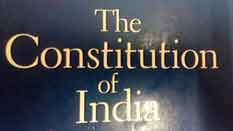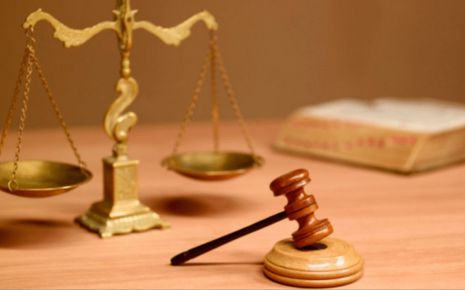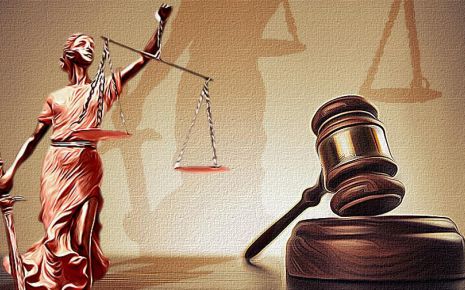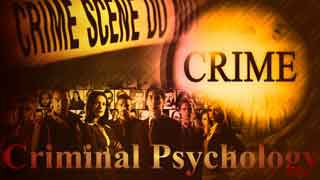Scope Of Sec. 145 Of Indian Evidence Act And Previous Statement Thereunder
'Witnesses are the eyes and ears of justice'.--
Jeremy Bentham
Every trial is a voyage of discovery in which truth is the quest to secure justice by full discovery of the truth and accurate knowledge of facts. [Ritesh Tiwari and another v. State of U.P., AIR 2010 SC 3823]. The inputs provided by witnesses as to facts-in-issue or material facts or facts relevant to the case helps the Court to arrive at a conclusion in deciding the lis. By the age-old practice on the touch stone of cross-examination, the value of evidence of witness is tested. On the other hand, contradictions in the previous statements in writing of a witness, is a very powerful weapon in the hands of the adverse party.
Section 2 (k) of Witness Protection Scheme, 2018 defines witness as: 'witness' means any person, who possesses information or document about any offence. [Mahender Chawla v. Union of India, (2019)73 OCR 547(SC)]
The witness can't be confronted with the statement of any other witness. The section consists of two parts. The first part deals with cross-examination other than by way of contradiction. The second part deals with contradiction only. Law provides if the witness is to be contradicted by his previous statement in writing or reduced into writing, his attention must be drawn to the said part of writing which are to be used for the contradiction by confronting him. The object of confrontation is to give a scope to him to explain any discrepancy/inconsistency or to clarify any ambiguity or dispute.
This section applies to both civil and criminal cases. For effective use of Sec.145 Evidence Act one should know which are considered as previous statement.
Conclusion:
Right to cross examination is an essential ingredient of fair trial as reiterated by Hon'ble Supreme Court in Jamatraj Kewalji Govani vs The State Of Maharashtra [1967 (3) SCR 415]. Judicial pronouncements have brought significant interpretations to the provision in the interest of justice and fair trial.
References:
Written By: Shri Amruta Ranjan Nanda, LL.M, Judge, Family Court, Rayagada
Every trial is a voyage of discovery in which truth is the quest to secure justice by full discovery of the truth and accurate knowledge of facts. [Ritesh Tiwari and another v. State of U.P., AIR 2010 SC 3823]. The inputs provided by witnesses as to facts-in-issue or material facts or facts relevant to the case helps the Court to arrive at a conclusion in deciding the lis. By the age-old practice on the touch stone of cross-examination, the value of evidence of witness is tested. On the other hand, contradictions in the previous statements in writing of a witness, is a very powerful weapon in the hands of the adverse party.
Who is considered as witness:
The term witness has not been defined in the Evidence Act, 1872 or in its successor Bharatiya Sakhya Adhiniyam, 2023 (in short B. S. A., 2023). The law of Lexicon defines witness as 'One who gives evidence in a cause; an indifferent person to each party, sworn to speak the truth, the whole truth, and nothing but the truth.'Section 2 (k) of Witness Protection Scheme, 2018 defines witness as: 'witness' means any person, who possesses information or document about any offence. [Mahender Chawla v. Union of India, (2019)73 OCR 547(SC)]
Right of Cross-examination is a valuable right:
After examination-in-chief of a witness tendered by a party, his opponent exercises right of cross-examination. Section 138 of Evidence Act, 1872 (Sec. 142 B.S.A.2023) confers such valuable right on a party to cross-examine the witness tendered by its opponent. Generally, the object of cross-examination is as follows:- To test veracity of the witness, to impeach/shake the credibility of the witness
- To discover who he is and what is his position in life.
- To bring out contradictions in his deposition as to examination-in-chief or previous written statement to show that his evidence is not believable.
Cross-Examination As To Previous Statement In Writing:
Section 145 of Indian Evidence Act, 1872 (Sec. 148 B.S.A., 2023) empowers cross-examination as to previous statements made by him in writing or reduced into writing. Sec. 145 of the Evidence Act applies when the same person makes two contradictory statements. Hence the witness can be confronted in terms of S. 145 of the Evidence Act by his own previous statement.The witness can't be confronted with the statement of any other witness. The section consists of two parts. The first part deals with cross-examination other than by way of contradiction. The second part deals with contradiction only. Law provides if the witness is to be contradicted by his previous statement in writing or reduced into writing, his attention must be drawn to the said part of writing which are to be used for the contradiction by confronting him. The object of confrontation is to give a scope to him to explain any discrepancy/inconsistency or to clarify any ambiguity or dispute.
This section applies to both civil and criminal cases. For effective use of Sec.145 Evidence Act one should know which are considered as previous statement.
Which Are Previous Statements In Writing:
The section states that 'previous statement' to be used for confrontation to bring out contradiction should be either written by the witness himself or should have been reduced into writing by somebody else. Now let me list out what statements have been accepted as 'previous statements' by various judicial pronouncements.- Statement made before police U/s. 161 Cr.P.C [ Sec. 180 of Bharatiya Nagarika Surakhya Sanhita, 2023] comes under previous statement of the witness' [Tahsildar Singh v. State of U.P., AIR 1959 SC 1012]
- F.I.R. authored by the witness concerned is his previous statement for the purpose of contradiction'. [Mer Vas Deva v. State of Gujarat, AIR 1965 Guj. 143, (1965) 1Cri.L.J. 696]
- The statement made by witness can be contradicted by drawing his attention to the statement made in Panchnama'. [Kanu Ambu Vish v. State of Maharashtra, AIR 1971 SC 2256]
- A cross-complaint is nothing but a former statement of his and can be used to corroborate or contradict the accused only, if the accused gives evidence in Court'. [Lalpratapsing Shivsahaysing v. The State, (1963) Cr.L.J. 355 / (1963) GLR 448]
- A statement of a witness recorded by a Doctor as a dying declaration, is previous statement of the witness if he survives and accused has a right u/s 145 of the Evidence Act to cross-examine him with regard to the statement'. [Ranjit Singh v. State, 1971 Cri.L.J. 1225].
- Entries in police diary is previous statement of the I.O. concerned and in certain circumstances can be used to contradict I.O.' [Balakram v. State of Uttarakhand, (2017) 7 SCC 668].
- Statements which are not fully recorded or statements which were recorded in the form of memorandum were treated as statements falling within the ambit of Sec. 145'. [The president, Shishu Vihar Bhagini Mandal, Hyderabad Vs. Yellaiah, AIR 1969 AP 148]
- A statement to an investigating officer can be deemed to have been 'reduced into writing' even when the officer has not recorded the statement in full, but has merely noted the gist of what was stated to him.' [Emperor Vs. Najibuddin and Others, AIR 1933 Patna 589]
- For S. 162 it is immaterial whether the statement is recorded in the actual words of the witness. It is sufficient if it is written in the diary merely in the form of a memorandum.' [Emperor Vs. Ajit Kumar Ghosh and Others, AIR 1945 Cal 159]
- Previous statement may be a letter, account-book, deed, written statement, deposition, petition, admission, affidavit, statements of witnesses before the Police'. [Dahyabhai Chhaganbhai Thakker v. State of Gujarat, AIR 1964 SC 1563.]
- The post-mortem report of a doctor is his previous statement based on the examination of the dead body and can be used to contradict him U/s. 145'. [Hadi Kirsani v. State of Orissa, AIR 1966 Ori 21]
- A previous statement, made by a person and recorded on tape, can be used not only to corroborate the evidence given by the witness in Court but also to contradict the evidence given before the Court, as well as to test the veracity of the witness and also to impeach his impartiality.' [N. Sri Rama Reddy v. V. V. Giri, AIR 1971 SC 1162 / (1970) 2 SCC 340.]
- The statement made by a complainant in the complaint petition or in the enquiry u/s 202 Cr.P.C. is definitely a previous statement'. [Judhistir Dasv. Jhari Das, 1998 (II) OLR 652.]
- The earlier statement made by the complainant in a complaint petition, sworn initial statement of the complainant recorded under section 200 Cr.P.C. or his statement, if any, recorded under section 202 Cr.P.C. by the Magistrate or recorded during an investigation being directed under Section 202 Cr.P.C. can be used as previous statements for the purpose of contradicting the complainant in view of the provisions under section 145 of the Evidence Act, to impeach his credit under Sec. 155(3) of the Evidence Act, to corroborate his testimony under Section 157 of the Evidence Act and to refresh his memory under Sec. 159 of the Evidence Act, if the complainant is examined during trial'. [HareramSatpathy v. Premlal Suna, (2015) 61 OCR 475 : (2015) Sup-2 CLT(Criminal) 297 : (2015) 2 ILR(Cuttack) 864 : (2015) (II) OLR 945]
- When a tribunal is held not to be competent to try a case, the deposition of witnesses recorded by it, is held previous statement for the purpose of s. 145
Which statements are not useful for confrontation:
- Evidence Act, 1872 - Sections 145, 155 and 157: Previous statement - The statement recorded under Commission of Inquiry Act cannot be used in judicial proceedings for any purpose whatsoever. [Kehar Singh v. State, AIR 1988 SC 1883.]
- Previous statement during investigation: Where a person who made a statement during the investigation of a complaint is subsequently accused of the offence, his statement can't be used either to contradict or corroborate him or other accused. [Mohr Rai v. State of Bihar, AIR 1968 SC 1281.]
- FIR of a person who turns accused: FIR of a person who subsequently turns as accused; can't be used as evidence against the accused during the trial. [Nisar Ali v. State of U.P., AIR 1957 SC 366.]
- Statement abstracted in a judgment: A statement of a witness abstracted in a judgment can't be made use for contradiction in lieu of the original statement in the deposition. [Saradamba v. Pattabhiramayya, AIR 1931 Madras 207.]
- Test identification memo: When a magistrate conducts a test identification parade, his test identification memo not being a record of a witness in a judicial proceeding is not evidence and is not usable for contradicting him u/s 145, 155 E. Act, 1872. [Sheoraj v. State, AIR 1964 Allahabad 290, Ram Sanchi v. State, AIR 1963 Allahabad 308.]
- Defence witness statement: Defence witness can't be contradicted with reference to his previous statement before police. [Laxman Kalu Nikalje v. State of Maharashtra, AIR 1968 SC 1390].
Conclusion:
Right to cross examination is an essential ingredient of fair trial as reiterated by Hon'ble Supreme Court in Jamatraj Kewalji Govani vs The State Of Maharashtra [1967 (3) SCR 415]. Judicial pronouncements have brought significant interpretations to the provision in the interest of justice and fair trial.
References:
- Indian Evidence Act, 1872
- https://prsindia.org/files/bills_acts/acts_parliament/2023/
Written By: Shri Amruta Ranjan Nanda, LL.M, Judge, Family Court, Rayagada
Law Article in India
Legal Question & Answers
Lawyers in India - Search By City
LawArticles
How To File For Mutual Divorce In Delhi

How To File For Mutual Divorce In Delhi Mutual Consent Divorce is the Simplest Way to Obtain a D...
Increased Age For Girls Marriage

It is hoped that the Prohibition of Child Marriage (Amendment) Bill, 2021, which intends to inc...
Facade of Social Media

One may very easily get absorbed in the lives of others as one scrolls through a Facebook news ...
Section 482 CrPc - Quashing Of FIR: Guid...

The Inherent power under Section 482 in The Code Of Criminal Procedure, 1973 (37th Chapter of t...
The Uniform Civil Code (UCC) in India: A...

The Uniform Civil Code (UCC) is a concept that proposes the unification of personal laws across...
Role Of Artificial Intelligence In Legal...

Artificial intelligence (AI) is revolutionizing various sectors of the economy, and the legal i...








Please Drop Your Comments